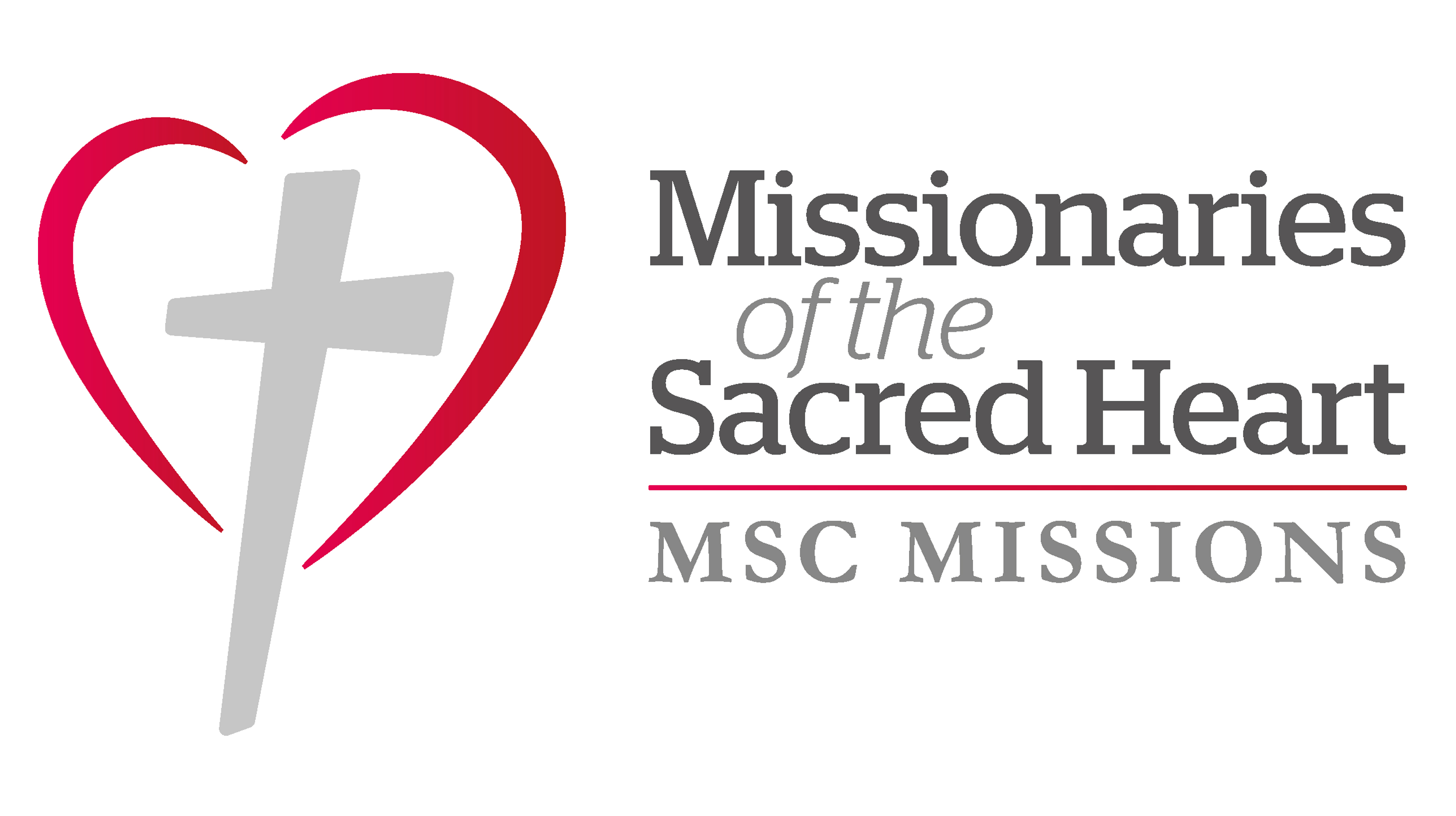Jan 16, 2025
What a wonderful way to begin the new year, with a very welcome update from our friends at the Holy Family Care Centre!
The Holy Family Care Centre is located in Ofcolaco, in the Limpopo Province of South Africa, where it provides residential care for up to 80 orphans, and sick and vulnerable children. Many of these children are living with chronic illnesses such as HIV/AIDs, TB, and other critical conditions. The children are mostly orphaned, and all are extremely vulnerable, so the Holy Family centre truly is a life-saving refuge for them. We at home in the Irish Province have long enjoyed an enduring friendship with Sr Sally and the Holy Family team, and our mission friends and extended Sacred Heart family here at home have provided invaluable support to the OLSH Sisters in Ofcolaco throughout the years.
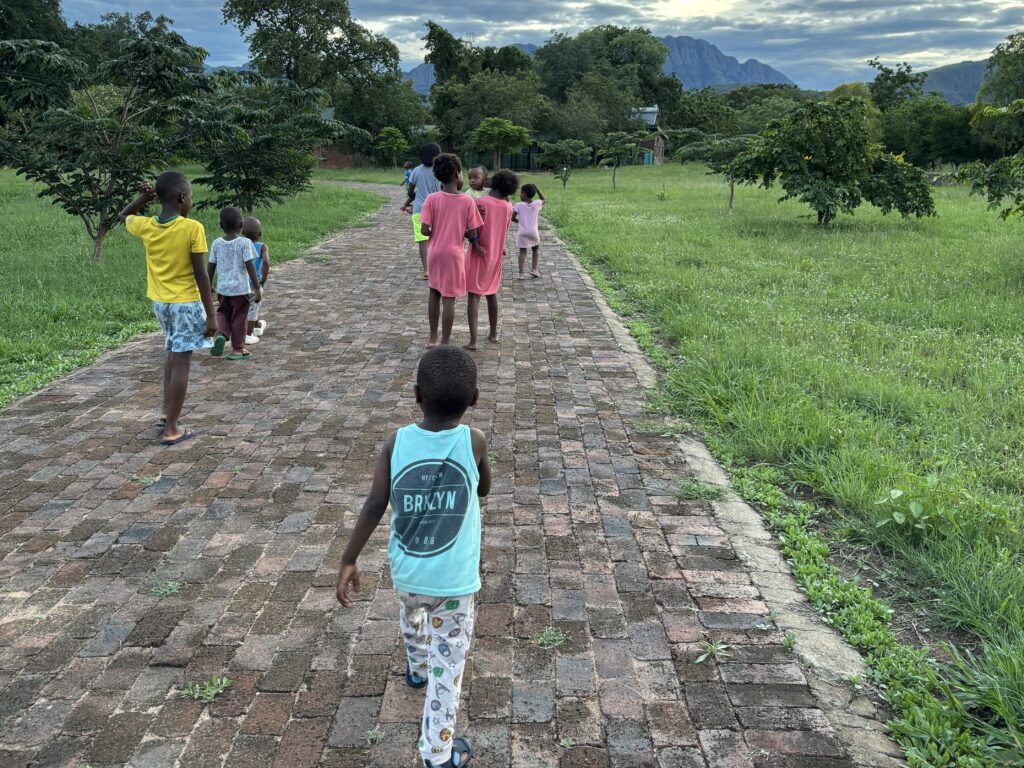
Back at the beginning of 2024, we asked our mission friends here at home to help the Holy Family community to raise funds to improve the dormitory facilities at the centre, and to build a new toilet block for the toddlers and younger children in their care.
Prior to this, the boys’ dormitory was home to 23 children and two staff members, with beds packed together side-by-side to fit everybody in. The Sisters were hoping to replace the 15-year-old bedding, and buy sets of bunk beds to create more space in the dormitory. Thanks to the generosity of our mission friends here in the Irish Province, the dormitory renovation has been a success, and the boys now have a far more comfortable space for rest.
The Sisters also wished to raise funds to build a toilet block for the 25 younger children in the crèche facility, with smaller, junior-sized toilets to help the toddlers with toilet training. The new toilet block has now been constructed, and is a great success with the younger members of the Holy Family community!
“Most sincere thanks to everyone who contributed to the 2024 World Projects Appeal,” writes Sr Jenny Christie FDNSC, International Development Officer for the Daughters of Our Lady of the Sacred Heart. “What a difference your support has made!”
We join Sr Jenny in thanking you, wholeheartedly, for your continued friendship and support, and we wish all at Holy Family a very happy, healthy, and peaceful 2025!
*
Jan 2, 2025
As we neared the end of December, the MSC Mission Office in the Philippines once again carried out its annual tradition of Christmas unity, sharing, and togetherness, with its Share a Christmas Basket programme.
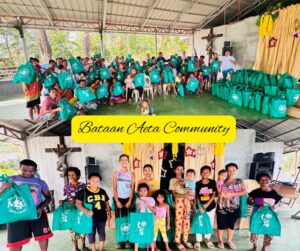
Just before Christmas, a tremendous group of local volunteers worked together to pack hundreds of baskets of groceries and Christmas provisions in preparation for the programme, which benefitted a total of 750 families this year. Each donation for a basket was marked at a value of 549 Philippine pesos, which meant that an entire family’s Christmas could be transformed for a little under €10 per household.
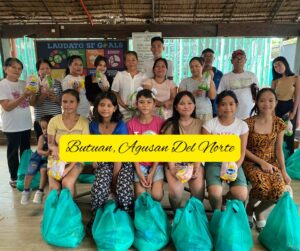
The MSC Mission Office in the Philippines posted their gratitude to all of their donors on their Facebook page, heading their post “A Moment to Remember”.
“The Missionaries of the Sacred Heart, through the MSC Mission Office, would like to express our deepest gratitude to the following donors for their generous support of our ‘Paskong Handog: A Christmas Noche Buena Basket Project’,” they wrote.
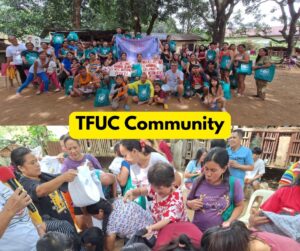
“Thanks to [our donors’] passion and generosity in helping the needy, the project was a resounding success! With their unwavering support, we were able to distribute 750 Noche Buena baskets to families in need in the following areas: Bataan, Triala, Nueva Ecija, San Anton Mission Station, Butuan, Cebu, Libis Caloocan, and various areas served by TFUC.
We are deeply grateful for your partnership in bringing joy and hope to so many families this Christmas season.
Merry Christmas & a Prosperous New Year to Everyone!!
From your MSC Family”
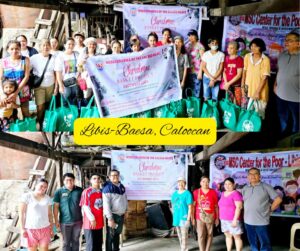
Well done to all involved in this wonderful project, which gave the priceless gift of a happy Christmas to hundreds of families in the Philippines. With the spirit of Christmas goodwill still in our hearts, we send every blessing to our MSC brothers in the Philippines and the communities they serve there.

“Wishing you a Happy New Year filled with joy, laughter, and endless possibilities.
May this year bring you peace, prosperity, and all the good things you deserve.
Cheers to a fantastic new year!!!”
~ MSC Mission Office Philippines, Inc. on Facebook
Images via MSC Mission Office Philippines, Inc. on Facebook
*
Dec 17, 2024
It’s all excitement in the Catholic University of South Sudan for the start of 2025. We are moving! Thanks in large part to the generous support of the Mission Support Office’s benefactors, we will shift all our lecturers and students to a local Catholic secondary school for the next four months. This will allow for the complete renovation of our existing halls, including lights and fans. We will be able to develop a programme of evening classes and extend our popular late night study sessions.
The building we are currently using is a repurposed youth centre, lacking ceilings, windows, and any electricity. As we move into the dry season, dust becomes a real problem and on a windy day it can feel like a scene out of Lawrence of Arabia minus the camels and sweeping vistas. During the rest of the year, when it rains it pours and students had to move to the centre of the classroom to avoid getting drenched.
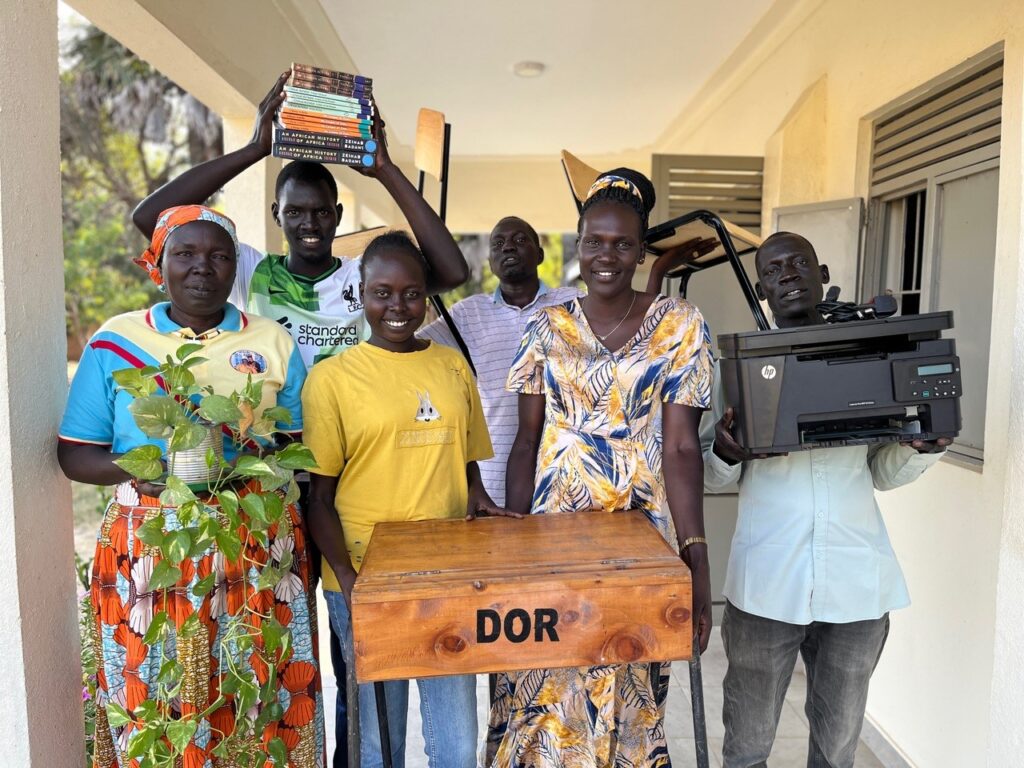
Many of our students actually came from that school, so it will be a chance to revisit the past and see if they can fit back into the small desks. It will take a considerable amount of effort, but it will be worth it. In future, we also want to use the new building as a training centre for existing teachers to upgrade their skills and support their work.
Thanks in a special way to all of you who have supported our ministry here and on behalf of everyone in the University we wish you a joyful Christmas and a peaceful New Year.
Nhialic abi thiei,
Fr. Alan
Our Students: Meet Helena and Isabella (Our newest student – just 2 months old)
Helena is 25 years old and is in her second year of a four-year Bachelor of Business Administration Degree. She has three other children along with Isabella. Only 4% of the population of South Sudan has access to electricity, so being able to study at night is a real challenge.
“I like to study in the Catholic University because there is availability of internet, to allow us to access new information. We have a little library and we have five computers. We now have night-time study twice a week and when my baby is old enough I can take part in it. During the day it is hot. Our temperatures can go up to 42C, so it is difficult to study. Our lecturers are very committed and we don’t miss a single class.
The University’s partial scholarship for women is encouraging us, as the full fee would be too much for us to pay, as many of us are not working. When you are pregnant in other universities you are suspended as a student, but here we are allowed to bring our babies with us and this is really helping us.
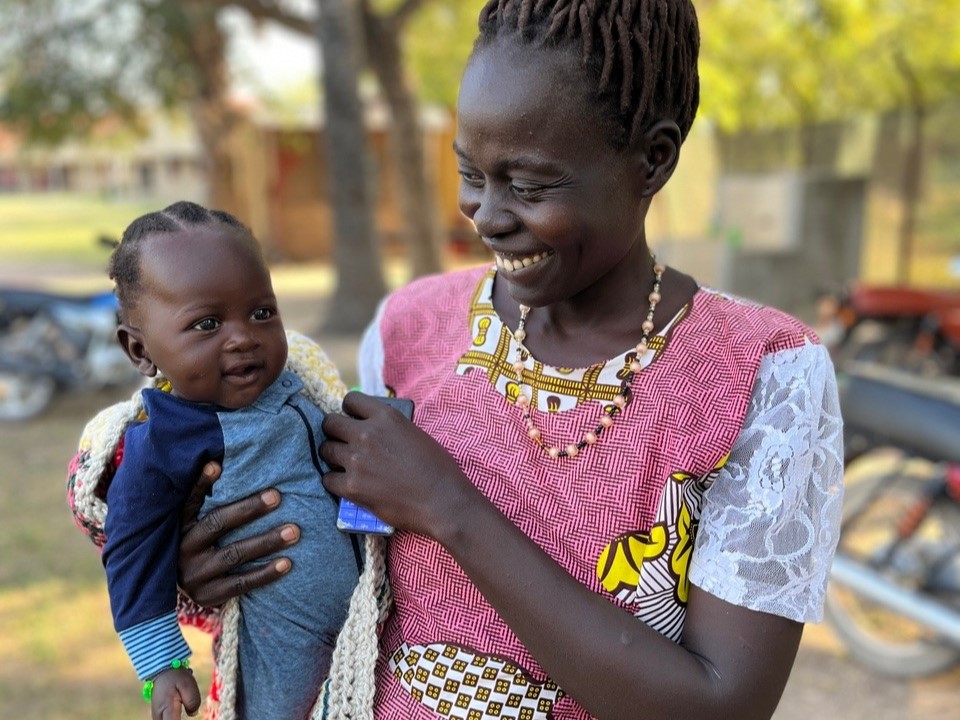
I study at night when the baby is asleep. When Isabella is awake she wants to know about everything I am doing. I have to get up at 2:00am and study until 4:00am using a torch. Then I start preparing for my other children to go to school, lighting the fire, and making the porridge.
My hope for the future is to open up my own school, to ensure that education reaches more children in South Sudan. In our primary schools we have a lot of students, up to 150 children in a class with one teacher and those teachers often are not well trained.
With everything that is going on here the number of students will increase next year. Our sisters are admiring how we going and they hope to join us.”
Read more from Fr Alan’s missionary journey in South Sudan:
Nov 21, 2024
October was an especially busy month for the MSC Missions Office here in the Irish Province, as our MSCs hit the road to meet with some of our many friends and benefactors in different parts of Kerry, Waterford, and Cork. Fr John Fitzgerald, Director of the MSC Missions Office, was at the helm of a team of MSCs who ventured around Munster to meet with just some of our wonderful mission family here at home, in great gratitude for the invaluable support and friendship we see in action every day.
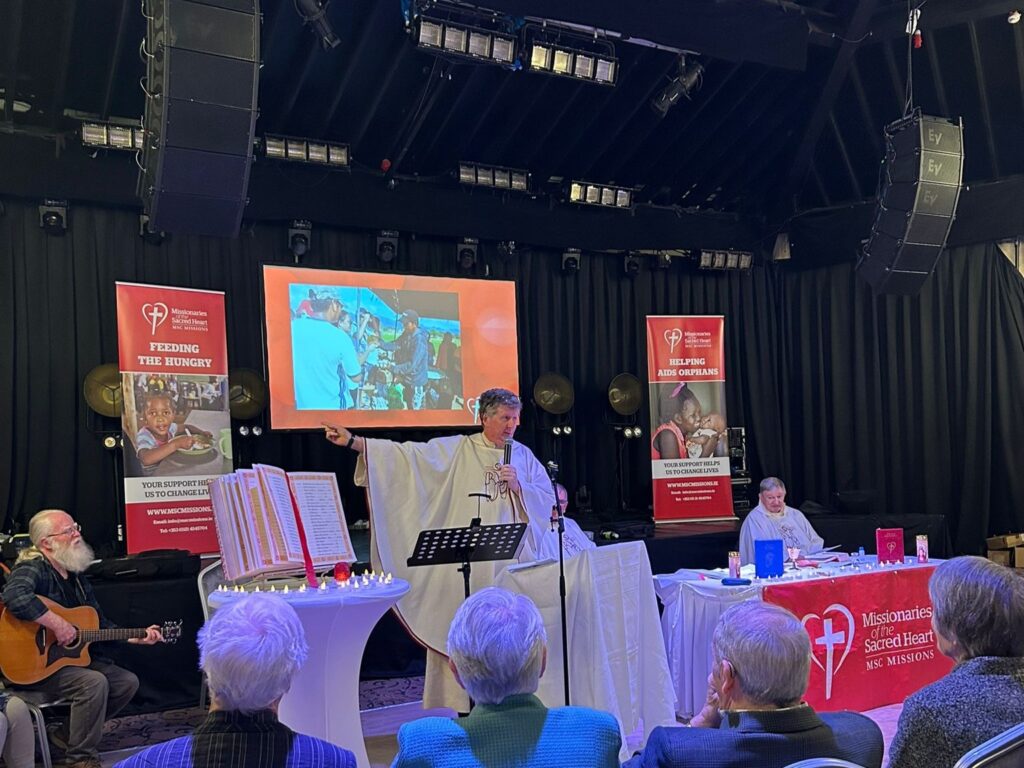
A series of four thanksgiving evenings took place throughout the month of October. Everybody in attendance was enrolled in our Golden Book of the Sacred Heart and our Blue Book of Our Lady of the Sacred Heart, while the books themselves were a special part of each evening’s celebrations. Those present each received a little flameless candle, all of which were placed around the Golden Book and the Blue Book display at the beginning of each evening, so that everybody’s intentions would be remembered throughout the night.
During our Thanksgiving Mass, a video played in the background, highlighting our mission projects around the world, and the life-changing work our MSCs undertake every day. Fr John Fitzgerald regaled the congregation with stories from the mission fields, explaining just how vital the help we receive from home is, and how the support of our mission friends makes an unimaginable difference in places many of us will never see in person. Gerry and Dee provided beautiful music throughout each Mass, and after each ceremony, there was an opportunity for our mission friends to chat with our MSCs over tea and coffee. Each evening was a special way for our MSCs to reconnect with just some of the benefactors who make our work possible every single day.
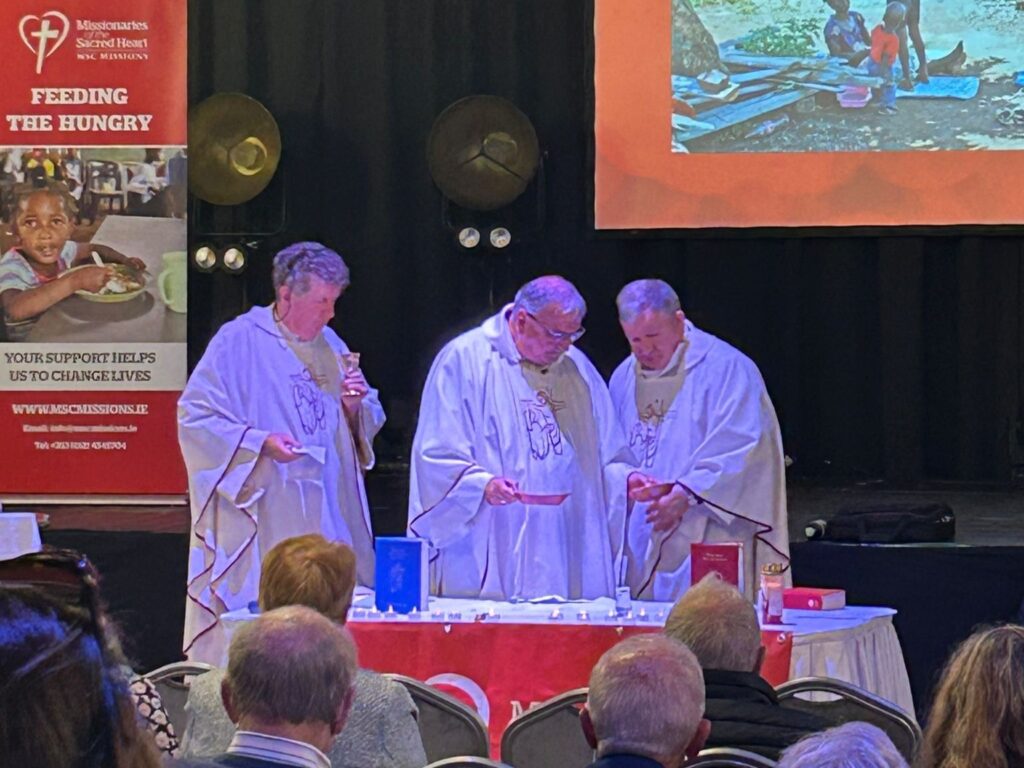
“An honour and a privilege”
The first event took place in the Killarney INEC at the beginning of October, where Fr John Fitzgerald, Fr John Finn, and Fr Seamus Kelly met with some of our Kerry friends. Then it was on to Waterford, where Fr John Fitzgerald and Fr Alan Neville met with some of our benefactors at the Tower Hotel in Waterford City. Finally, the month ended with two events at the Sacred Heart Church on the Western Road in Cork, where Fr John Fitzgerald was joined by Fr John Finn, Fr Alan Neville, Fr Seamus Kelly, Fr Tom Mulcahy, Fr Con Doherty, and Fr Tony Horgan. Our Head of Fundraising, Mary Morrish, also joined the team to thank just some of the mission family that make our work possible. Our MSCs met over 400 people over the course of four evenings, giving us a great chance to chat with people who are changing lives across the world, through the kindness and compassion that begin at home.
“It was our absolute honour and privilege to celebrate Mass with our mission friends and benefactors, and to meet with those who could come along to our evenings,” says Fr John Fitzgerald. “I am astounded at the knowledge they have, both of our projects and of our MSCs, and I have been equally amazed at the fact that so many of them have continued the tradition began by parents or loved ones who have now passed in supporting our missions. It is always humbling to have the opportunity to hear personal requests for prayer, for those who are sick or facing different challenges, and it really has been our privilege to be able to hear these intentions in person, and to pray with some of the people whose kindness is encouraging and motivating our MSC communities across the world.”
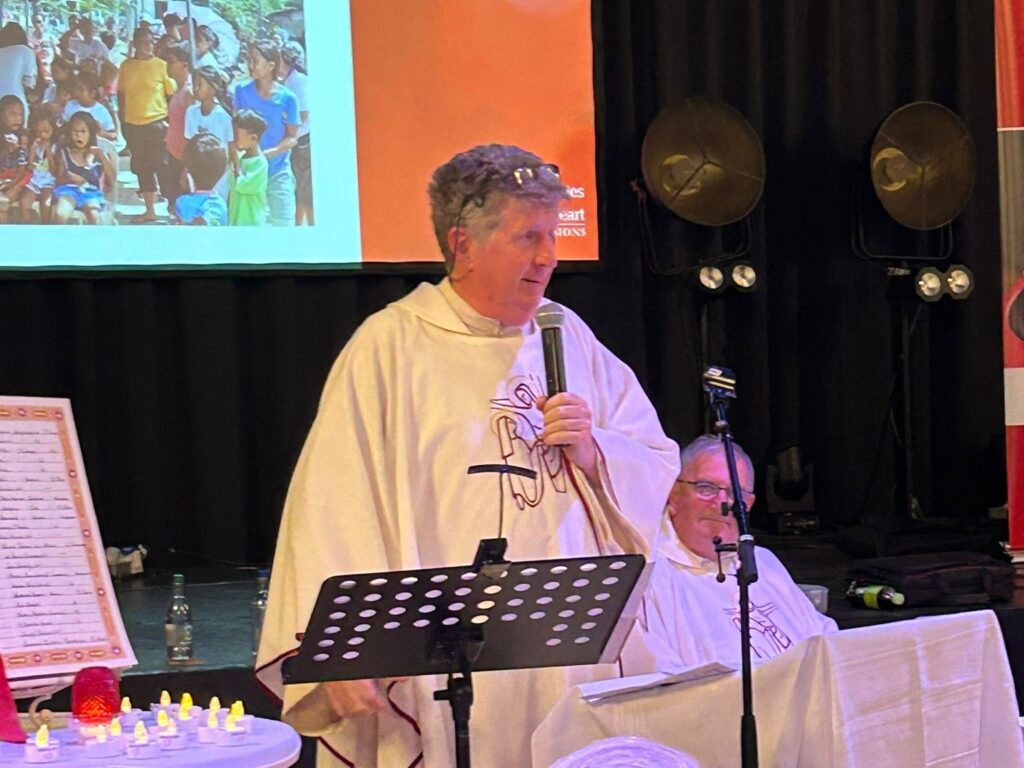
It really was a very special thing to be able to chat in person about our current projects, as MSCs and mission friends alike both heard stories and told their own. Indeed, it brought home to us all the fact that, despite distance and differences, we all have our own challenges and goals at heart, and we are all doing our best in our own situations. It is truly heartwarming to see the great generosity of mission friends and benefactors who are dealing with their own struggles in life, reaching across the miles to help beneficiaries on the mission fields who might be facing similar family problems, albeit in different circumstances. The generosity that begins in your own home, through our Missions Office here in Cork, quickly reaches our MSCs who are ministering in places like rural Guatemala, remote villages in the Amazon, and the barrios, or slums, of Venezuela, to name but a few. It just goes to show that the boundaries set in place by distance or language are nothing in the face of compassion, and that is the true missionary spirit and the love of Jesus in action in human form, here on earth.
While our team of MSCs were fortunate enough to meet with a great many of our mission friends and benefactors on this occasion, we are of course acutely aware of so many more people who all provide fundamental support to our ongoing missions. Constraints of time and space mean that we cannot meet with everybody in one swoop, but rest assured that every single donation we receive is put to the best possible use with heartfelt gratitude, and every one of our benefactors across the province is in the prayers of our MSCs priests daily. Having received such a warm welcome in Kerry, Waterford, and Cork, we hope to be able to meet even more of our extended mission family in the not-too-distant future, and in the meantime, we thank you sincerely for your continued friendship and support, which means so much to so many.
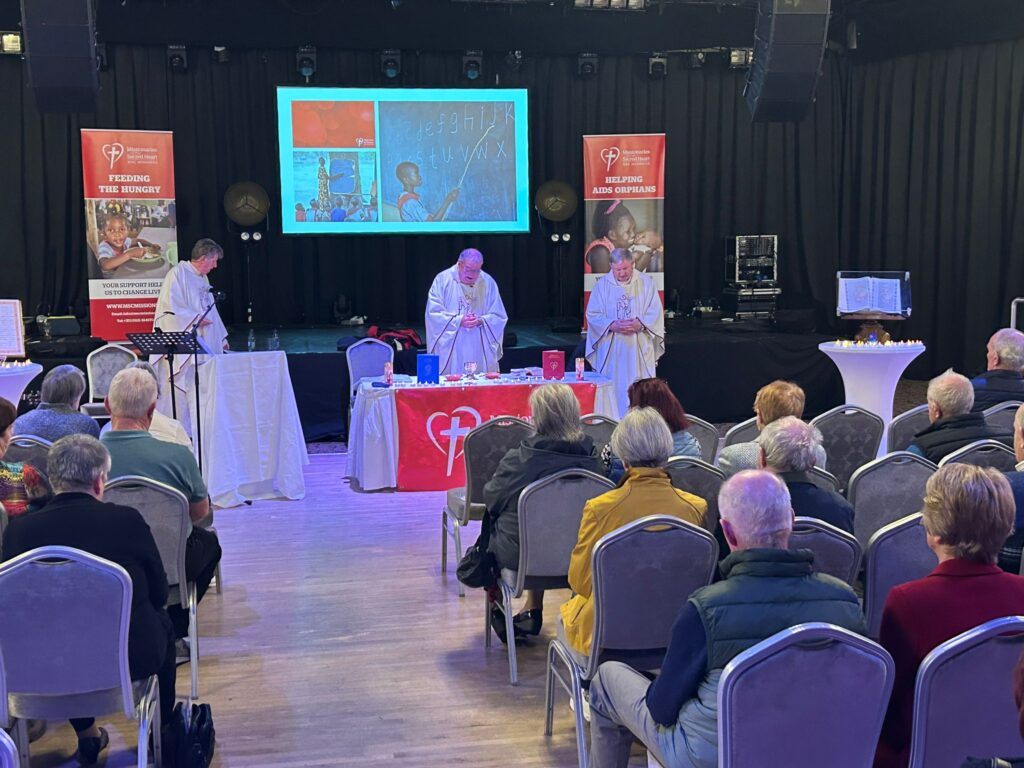
Oct 31, 2024
A recent article on the Aleteia website shone the spotlight on Fr Albert Boudaud MSC, Papua New Guinea’s oldest missionary. Aleteia’s Camille Dalmas writes a touching piece on Fr Albert, now aged 84, and his missionary journey, following an encounter during Pope Francis’ visit to Port Moresby in September of this year.
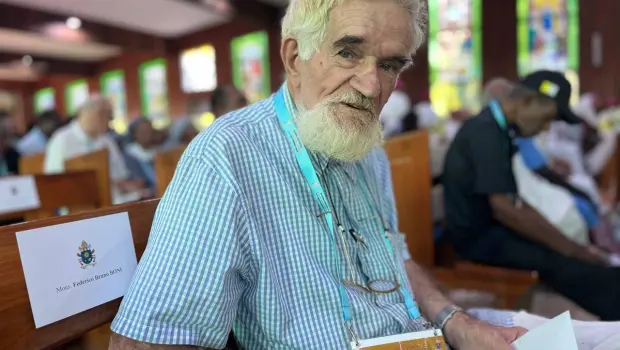
Fr Albert Boudaud MSC (Image from Camille Dalmas’ article on www.aleteia.org)
The article explains how Fr Albert began his ministry in Papua New Guinea in 1968, at the age of 28. Originally from the Vendée, he joined the Missionaries of the Sacred Heart in Issoudun and was ordained in 1967.
Following his initial pastoral year in Paris, Fr Albert embarked on what was an epic voyage to Papua New Guinea, “a place where his congregation were pioneers”. The journey took 45 days, taking him “across the Mediterranean, the Atlantic, and finally to the Pacific via the Panama Canal… Then came the Marquesas, Vanuatu, New Caledonia, and Sydney. And from there, he traveled to Port Moresby.”
“He remembers sailing the Pacific Ocean for nine days without seeing anything but water,” writes Dalmas.
Making Papua New Guinea his home, Fr Albert moved throughout local villages, learning as many of the country’s 800 different languages as he could. “I came voluntarily, I integrated myself, I made it my country by living close to the people,” he says in the Aleteia piece.
To fit in, he also had to chew areca nut, the natural drug — also known as betel nut — that turns the teeth of so many Papua New Guineans red (and causes mouth cancer). “When the situation was a bit difficult, we’d chew together and that made it possible to get things done.”
Shoes and sandals wore out during these years of mission, when he wasn’t simply going barefoot over muddy terrain. He took the Gospel and the Eucharist on “patrols” to remote villages. He remembers being bitten by snakes before chasing them away with a stick.
He also has baptized people everywhere. “It’s our most important job,” he insists. He spent several days in each village, celebrating Mass and conferring the sacraments.
– Camille Dalmas, Aleteia
Fr Albert is now retired after many years of faithful service. To read his full story, please click here to visit the Aleteia website.
Oct 17, 2024
September and October were action-packed months in San Agustin, Guatemala, at the MSC-run vocational school Centro Faustino Villanueva!
The month of September brought very special celebrations indeed as students at the school marked the 203rd anniversary of Guatemala’s independence.
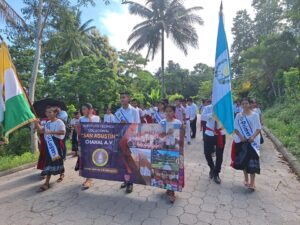
“Guatemala is your land, your homeland, cherish it, magnify it, love it, defend it. Make it Happy!,” read a post on the Facebook page for Centro Faustino Villanueva, which was accompanied by these wonderful images of colourful and fun-filled celebrations.
In October, the community at the centre celebrated the joy of youth with Dia del Niño, or Children’s Day. “We celebrate those who, with their infectious laughter, teach us to enjoy the little things,” the centre posted on Facebook.
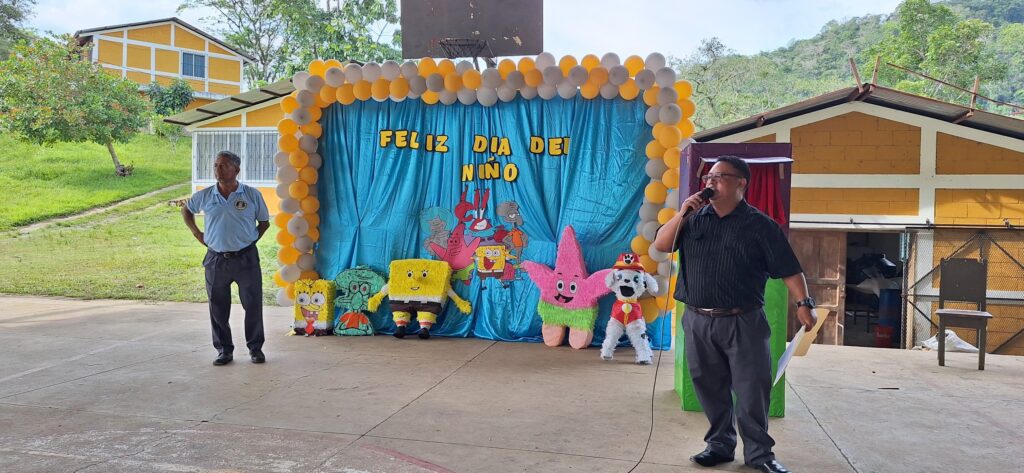
Founded by the Missionaries of the Sacred Heart in 1984, Centro Faustino Villanueva marks its 40th anniversary this year. This vocational centre is dedicated to helping disadvantaged and underprivileged youths, and is located in the extremely remote region of San Agustin, Alta Verapaz, in Guatemala. Situated more than eight hours’ drive from Guatemala City, the school provides a vital service to children and youths living across this very rural area.
With the motto “Open doors to education”, the centre works with over 200 students from impoverished villages and vulnerable family groups in the surrounding area, with a waiting list for places. Youths at the centre can study a range of three career skill sets: business administration, science, and teaching. A recent agricultural programme also works to supplement the food supply for the school community, while teaching the students valuable life skills that they can take back to their own homes and communities to improve the quality of life there.
With blessings and best wishes to Fr Jairo and all at Centro Faustino Villanueva as they continue in their invaluable work for families and communities across Alta Verapaz.

